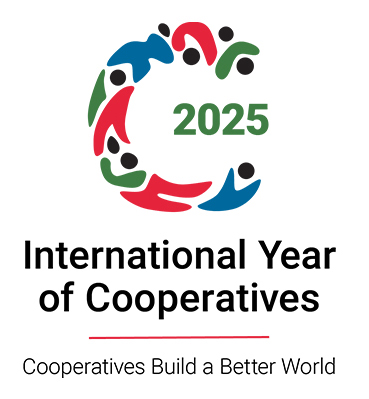Recreational Facilities
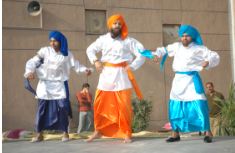 The prisoner's participation in games and sports activities within the prisons took a big jump with the organization of inter-ward and inter-jail competitions twice a year for the last over five years. In all the prisons, sports like volleyball, cricket, basketball, kho-kho, kabbaddi, chess, carom etc. are organised during winter sports festivals, which are popularly known in the jail as "Tihar Olympics". Inter jail cultural meets titled "Ethnic Tihar" are held during spring season every year in which competitions in music, dance, sher-o-shairi, quawali, painting, quiz etc. are organised for inmates. Eminent personalities from the field of sports and culture are invited on these occasions to encourage the prisoners to take part in the sports and cultural events, to foster their physical, mental and cultural development and inculcate discipline.
The prisoner's participation in games and sports activities within the prisons took a big jump with the organization of inter-ward and inter-jail competitions twice a year for the last over five years. In all the prisons, sports like volleyball, cricket, basketball, kho-kho, kabbaddi, chess, carom etc. are organised during winter sports festivals, which are popularly known in the jail as "Tihar Olympics". Inter jail cultural meets titled "Ethnic Tihar" are held during spring season every year in which competitions in music, dance, sher-o-shairi, quawali, painting, quiz etc. are organised for inmates. Eminent personalities from the field of sports and culture are invited on these occasions to encourage the prisoners to take part in the sports and cultural events, to foster their physical, mental and cultural development and inculcate discipline.
Both adult and formal education arrangements have been made for prisoners. Educational activities are looked after with the help of Government resources as well as NGO's participation. Study Centres of the Indira Gandhi National Open University (IGNOU), New Delhi and National Institute of Open Schooling (NIOS), Delhi are established at Tihar Prisons in which about 2640 and 1900 inmates students are enrolled respectively. Computer training centres are also working in the Prisons for
Prominent dignitaries like Hon'ble Chief Minister of Delhi Smt. Shiela Dikshit, members of parliament, Members of International Committee for Red Cross, Judges of Delhi High Court with other Judicial Officers of Subordinate Judiciary, DG/IG (Prisons) of various states, Senior Government Officers from centre and Delhi State Govt., Yoga-acharya Swami Ramdev Ji Maharaj, Archbishop of Delhi, Members of National and Delhi Commission for Women, High Commissioner of Australia visited during last, one year.
Famous actress Ms. Nandita Das inaugurated Pottery Unit in Tihar. These efforts have gone a long way in channelising the energy of the prisoners towards a positive direction.
Both adult and formal education arrangements have been made for prisoners. Educational activities are looked after with the help of Government resources as well as NGO's participation. Study Centres of the Indira Gandhi National Open University (IGNOU), New Delhi and National Institute of Open Schooling (NIOS), Delhi are established at Tihar Prisons in which about 2640 and 1900 inmates students are enrolled respectively. Computer training centres are also working in the Prisons for imparting computer education to the prisoners.
Educational Facilities
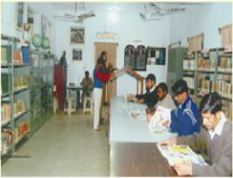 he most important aspect of the education system in Tihar Jail is that educated prisoners voluntarily teach less educated prisoners. An illiterate person landing in Tihar Jail can look forward to being literate if his stay is more than a week. Library with the support of Non-Governmental Organisations has been created in each jail.
he most important aspect of the education system in Tihar Jail is that educated prisoners voluntarily teach less educated prisoners. An illiterate person landing in Tihar Jail can look forward to being literate if his stay is more than a week. Library with the support of Non-Governmental Organisations has been created in each jail.
Capsule computer courses of six months duration are provided to the willing and eligible inmates with the help of NGO Sterlite Foundation. Many new courses like Bachelor or Art/ Commerce/Preparatory Programme Diploma in Creative Writing in Hindi/English, Certificate in Human Rights, Masters in Tourism/Management/Computers Post Graduate Diploma in Distance Education are the main course studied in Tihar Jail.
Vocational classes in English/Hindi typing and Commercial Arts are conducted by Directorate of Training & Technical Education and certificates are issued to successful students.For spreading the Gandhian Philosophy, a Gandhi Centre has been established by Gandhi Smriti and Darshan Samiti, Government of India at IGNOU ward. More than 500 books on Gandhian philosophy were added to the library. Some of the inmates who joined the path of 'Reformation through Education' have been successfully rehabilitated.
Expenditure on fees for IGNOU / NIOS courses is borne by the Government. Study material like note-books, pens etc. is also being provided free of cost to inmate students.Many dignitaries including Chief Minister, Ministers, Director / Inspector General of various prisons, Judges, Vice-Chancellor of IGNOU, Chairman NHRC, Media persons and NGOs of International organisations had visited the centre during last one year and have appreciated the efforts of jail administration.
The educational activities form an integral part of the reformation programmes of Prison department. The educational activity in Prisons are organized at different level for different categories of prisoners like illiterates, neo-literates, semi-literates, literates and for those desirous of getting higher education. There are study centers of Indira Gandhi National Open University (IGNOU). National Institute of Open School (NIOS) from where a prisoner can purse his studies and he is given certificate/degree for that course without mentioning the place of examination i.e. jail. Literate inmates whose conduct is good help the Prison administration in imparting education to other inmates. The imparting of education both formal and informal is an important component of prisoner daily routine. Department of adult education, Ministry of Human Resource Development is giving training to educated prisoners to enable them to teach less educated and illiterate prisoners. Special attention is given to illiterate inmate so that he may be able to read and write his name within a week time. Advance educational avenues are available to prisoner so that if they want to pursue higher studies they may do so through IGNOU etc. Special attention is given for the prisoner appearing for various competitive examinations.
Table
| S. No | Educational Facilities | No. of prisoners |
| Elementry Education | 2167 | |
| Adult Education | 923 | |
| Higher Education | 1024 | |
| Computer Courses | 230 | |
| Total | 4344 |
Sports Activities
Sport activities form an integral part all management. Inter Jail sport competitions are organized in different games which are christened as Tihar Olympic. The games like cricket, Badminton, Volley ball, Basket Ball, Table Tennis, Chess, Kho-Kho, Kabaddi, Tug of War etc. are regularity played.
A. Cricket
A Cricket final was played at the cricket ground of Central Jail No.1 on 13/02/2013 between the teams of Central Jail No.1 and Central Jail no.2. The chief guest at the event were famous cricketers Sh. Virender Sehwag & Shikhar Dhawan alongwith singer Aman Trikha. The championship was won by the team of Central Jail No.2 who defeated Central Jail NO.1.
B. Volley Ball
The final of volley ball championship was played on 13/02/2013 between the team of Central Jail No.2 and Central Jail No.3. The team of Central Jail No.2 has won the final match defeating the team of Central Jail No.3. The chief guest of the occasion was Padamshree Yogeshwar Dutt the famous Indian Wrestler.
C. Kho Kho
Final of the kho-kho match played in Central Jail No.5 on 26/02/2013 between the teams of Central Jail No.2 and 5. The team of Central Jail No.5 emerged the winner. Famous wrester padamshree Sushil Kumar, winner of the silver medal in 2012 London Olympics, was the Guest of the Honour of this occasion who distributed prize to the winner and runner up teams.
D. National Power Lifting
Rahul Khera, Pharmacist, Delhi Prison participated in national power lifting championship which was organized by Indian power lifting federation (India) at Tata Nagar (Jharkhand) from 10th April 2013 to 14 April 2013 and he won silver medal in the competition.
NGO Activities
A. Sahajyog
A Musical programmes was organized by NGO sahajyog in Central Jail No.8/9 on 31/07/2013. The chief Guest on the occasion was Dr. Smt. Kiran Walia, Hon’ble Minister of Education, Social Welfare, Women and Child Development and language. She appreciated the prison management particularly and production of blankets. She assured the order for supply of blankets to the various Department of Delhi Govt. including the Social Welfare Department.
B. Punjabi Promotion Council
An Iftaar party was organized in Jail No.4 by the NGO Punjabi Promotion Council on 02/08/2013 in which a large number of fasting prison inmates participated. The Chief Guest on the function was Sh. Safdar Khan, Chairman Delhi Minority Commission Government of National Capital Territory of Delhi. Sh A. U. Sheikh a noted Muslim Scholar was also present who had addressed the.
C. Dwarkasheesh Trust
Eye check-up camps were organized on 5-6/2/2013 in Tihar Jail in association with Dwarkdheesh Trust and Vasan Eye Care Hospital and around 700 inmates were examined by the experience doctors from Vasan Eye Care Hospital. Informative sessions were also organized by the doctors for proper care of the eyes. On 02/09/2013, another eye camp was organized for the inmates of this Jail by Punjabi Promotion Council in association with doctors of Rock Land Hospital.
D. Lion Club
Dental camps were organized by Lion Club, Ptiam Pura Kohat and Sai Mobident Centre in Central Jail No.5 and Rohini Jail experienced Dentists examined the Dental Oral Health of aound 300 inmates with lated equipments and also provided them the required medicines. They informed the inmates about the importance of oral health and the methods of cleaning of the denture.
Panchayat System and Participative Management
Prisoners are encouraged to participate in the management of their welfare activities. Sense of responsibility is inculcated in the prisoners to prepare them for social integration. Prisoners bodies called "Panchayats" are constituted to help prison administration in the field of education, vocational education, legal counseling, kitchen, public works etc. Once in every year a Mahapanchayat is organised in all Central Jail on rotational basis, in which panchayat members of all Tihar Prisons participated along with about 2000 prisoners to discuss problems of prisoners. The Mahapanchayat was an open meeting of prisoners taken by DG (Prisons) and it was held in the presence of electronic and print media. This gives an opportunity to all the prisoners to air their grievances before the head of the Prisons Administration i.e. "The Sarpanch". All such suggestions/Grievances are sympathetically heard and immediate redressal actions are initiated. Besides giving the prisoners a sense of pride it also helps in letting the steam off which may otherwise lead to serious consequences, if allowed to accumulate. The prisons look like a self-contained Indian village where the prisoners themselves regulate their welfare activities under the guidance of prison officials. The prisoners themselves manage prisoner welfare canteens.
Rehabilitation
The study of the problems faced by the prisoners after release and the reasons for committing crime guided Tihar Jail Admn. to initiate steps, which can go a long way in rehabilitating the prisoners after their release. Various trades are taught to convicts in the Jail Factory itself in Jail No. 2. In addition a programme for teaching various trades was started in other jails also both for convicts as well as undertrials. This programme includes pen manufacturing, book binding, manure making, screen printing, envelope making, tailoring and cutting, shoe-making etc. which has not only resulted in learning a trade but also provided monetary gains to the prisoners. For the post-release rehabilitation of the prisoners, the Social Welfare Department of Delhi Govt. provides loans for setting up self-employed units.
Yoga and Meditation
For cleansing and disciplining mind, Yoga and meditation classes were started in a big way with the help of various voluntary organisations. In the year 1994 Tihar Jail created a history by organising a Vipassana Meditation camp for more than one thousand prisoners. Since then a permanent Vipassana center has been opened in Tihar Jail No.4, where two courses of ten days duration are organised regularly. In the year 1998, Sh. Satya Narain Goenka, teacher of Vipassana, inaugurated "Pagodas" meditation cells in the center. Staff members are also encouraged, to attend meditation courses. Meditation groups like Brahma Kumari Ishwariya Vishvavidyalaya, Divya Jyoti Jagriti Sansthan, Sahaj Yoga Kendra have also opened their branches in Jails for imparting moral education, counseling and techniques of meditation to the prisoners. This has helped many prisoners in changing the whole approach to life.
Legal Aid Activities
A legal Aid Cell is functioning in each Jail which is being visited by the advocates deployed by Delhi State Legal Service Authority as well as Delhi High Court Legal Service Committee. The Legal Aid Cell are being regularly visited by secretaries of District Legal Services Committee who on their visit are ensuring that effective legal aid mechanism exist for the welfare of prisoners. It is also being ensured that every eligible prisoner is able to file his appeal at the State expenses and such prisoners are being regularly counseled by the prison authorities as well as by the visiting legal aid counsel.
- A free Legal Aid Cell in each Jail in which the stationary items, typing material, books etc. are provided by the Jail Department.
- Delhi Legal Services Authority deployed 27 advocates who are visiting the legal aid cells of the Jail and giving legal aid. The advocate deployed by Delhi High Court Legal Service Committee are also regularly visiting.
- The Law students from law faculty and national law university are visiting the Jail to help in legal aid activities.
- Regular drafting of application/petition/appeal of the prisoner by the advocates and legal panchayat formed by the legal literate prisoners.
- The matter for release of sick, infirm or old aged inmates are taken up with court.
- Custody parole to the convicts on the occasion of marriage, death, serious illness etc. by the Superintendent Jail.
- Special Court organized on monthly basis at Tihar Court Complex for the minor offenders languishing in Jail. Till date one hundred & fifty two courts have been organized and cases of 5454 prisoners settled. During the year 11 Special Court settled 140 cases.
During the year 34384 male prisoners and 154 female prisoners were provided legal aid.
The prison department has sent a proposal to the Government of National Capital Territory of Delhi proposing therein the initiation of Open Jail for the convicted prisoner at Tihar who has undergone two year conviction in the Semi Open Jail. The main feature of this Open Jail will be that the inmates will be able to go outside Tihar Complex for work and will come back during the prescribed evening hours. In the process the will be able earn the wages and will also familiarize themselves with outside world. The proposal has now been accepted.
Special Courts/Lok Adalats
In pursuance to the letter of Hon'ble Chief Justice of India in which suggestion was given to the Chief Justices of all High Courts that every Chief Metropolitan Magistrate of the area may hold his court once or twice in a month in jail to take up the cases of those undertrials who are involved in petty offences and are keen to confess their guilt, special Lok Adalats were organised in the Jail complex. Till date 119 courts have been organized and 4941 cases settled.
New Prison Act & Jail Manual
The Delhi Prisons Act, 2000 has been notified on 14/2/2002 . With the introduction of the new legislation with modern concepts of Prison Management, the jail functioning will be strengthened and reformation activities will get a boost. The New Prison Act will formalise and institutionalise the participation of NGOs in Prison Management. The draft of Delhi Prison Rules is under consideration of the Government.
Creative Art Therapy
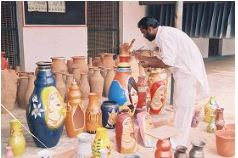
Creative Art Therapy, which is psycho-therapeutic in nature, is used in several settings. In respect to prison setting, the therapy serves as a reformatory process in several ways. Firstly and most importantly, it helps to express, channelise and ventilate himself. One has to keep in mind that anyone convicted or otherwise exiled from the rest of the world is initially bound to have tremendous anger, aggression, sense of helplessness, hopelessness and emotional problems. Therefore, by encouraging and promoting Creative Art, the individual is able to release his pent up emotions and realize his worth as 'self' having a positive desire of improving himself both consciously and unconsciously.
Painting/Greeting Cards exhibition by adolescent prisoners was organized at venues:-
- Central Cottage Industries Emporium, New Delhi
- Central Jail No.4, Tihar, New Delhi
- Kala Ghoda, Art Gallery, Opp. Jahangir Art Gallery
- India International Trade Fair, Pragati Maidan, New Delhi
- Japanese Park, Pitam Pura, New Delhi
- Inter Continental, Connaught Place, New Delhi
- Australian High Commission, New Delhi.
System of Parole
Parole is granted to the convicts whose appeal against conviction has been decided by the appellate court. There is no restriction on a convict about the number of times he applied for parole. The parole is generally granted on the grounds of sickness, death, marriage, property dispute, education or any other sufficient reasons. This is granted by the Hon'ble Lt.Governor, Govt. of National Capital Territory of Delhi. The parole is not admissible to the convict undergoing sentence in the NDPS cases. The period of parole is counted towards the total sentence of a prisoner.
System of Interviews
Each prisoner is allowed to hold two interviews per week with his relations/friends. The interviews are generally permitted in the "Mulaquat Jungla" of a jail which is near the Deodhi. The duration of each interview is 30 minutes. The interviews are conducted as per the first name alphabet of a prisoner and these are so arranged so that each alphabet has two days earmarked in a week. The interviews of sick prisoners are allowed either at the hospital or deodhi. Each prisoner is normally permitted three visitors per interview. During the interview, a prisoner is allowed to receive vegetarian food, fruits and clothes. He is further allowed to receive coupons worth Rs.250/- per interview. In addition, prisoners are entitled to receive interviews from his legal advisor on working days.
Tele Booking Facility for recording Interviews with prisoners is also available. Public can record their interviews over telephone number +91-11-28520202 (1300 Hrs to 2000 Hrs.) for interacting with prisoners lodged in respective jails.
Ventilation of grievances
A prisoner grievance cell is working effectively under the charge of Petition Officer and immediate remedial steps are taken on the complaint/grievances of the prisoners. Prisoners have been provided facilities to write complaints and send them to senior officers either through fixed complaint boxes located at convenient places in the jails or even through the mobile petition box meant for petitions addressed to D.G., which is taken to all the enclosures in the Jails everyday. Petition boxes are taken in the jails by the staff deployed at the prison head quarters and the key of the boxes are handled by the office of the DG (Prisons). Jail Superintendent, Deputy Superintendent and even senior officers have frequent meetings with the prisoners openly where prisoner grievances are listened carefully and solutions provided.
Societal Participation in Reformation
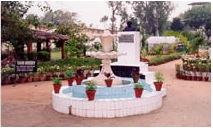 As a part of community participation in the reformation and social integration of prisoners after release, a large number of respectable members of non-Governmental Organisations, Retired Major General, Professors of I.I.T Delhi, Eminent Psychiatrist, Psychologist, Principals and Teachers of various educational institutions have been conducting various activities in the Prisons. These NGOs have had very sobering and positive impact on the psyche of the prisoners, who have been shown the positive and constructive approach to life after interaction with them. NGOs participation is mainly concentrated in the field of education, vocation and counseling. Apart from the formal education with the NGO support, the classes in various languages like Urdu, Punjabi, German, French etc. are also held. Some of the NGOs have trained selected prisoners on various trades and have been bringing job for them against payment of remuneration. These prisoners are also rehabilitated by them after their release.
As a part of community participation in the reformation and social integration of prisoners after release, a large number of respectable members of non-Governmental Organisations, Retired Major General, Professors of I.I.T Delhi, Eminent Psychiatrist, Psychologist, Principals and Teachers of various educational institutions have been conducting various activities in the Prisons. These NGOs have had very sobering and positive impact on the psyche of the prisoners, who have been shown the positive and constructive approach to life after interaction with them. NGOs participation is mainly concentrated in the field of education, vocation and counseling. Apart from the formal education with the NGO support, the classes in various languages like Urdu, Punjabi, German, French etc. are also held. Some of the NGOs have trained selected prisoners on various trades and have been bringing job for them against payment of remuneration. These prisoners are also rehabilitated by them after their release.


 Central Jail
Central Jail